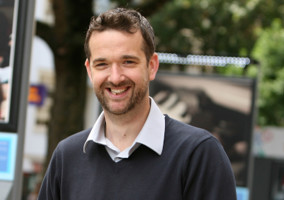Like many charities, the outbreak of Covid-19 has had a huge impact on the BHF and our research funding. Back in March, following government guidance, we temporarily closed our 730 shops and stores and cancelled all fundraising events – including our flagship London to Brighton Bike Ride. Our supporters also postponed many of their own fundraising activities, all of which had a devastating effect on our income. As a result, we predict that we will have to cut our funding for new research in half this year – from £100m to £50m.
It was clear from the outset of the crisis that technology would be vital in supporting the charity through this period – not least because overnight we had to adjust to over 1,000 office staff working from home. To put it in perspective, at the beginning of March we had 6,000 Microsoft Teams calls a day and by the end of March it was 17,000. We had to swiftly find the best ways of working and delivering all technology services remotely, as well as adapting to an increased threat to our cyber security. This had to happen without taking shortcuts on customer experience, governance and data integrity.
It was a hectic time for my team and I, but we learnt to adapt and move quickly, working with the information we had. It showed us what can be achieved when we need to be reactive; projects which once took months were coming together in days or weeks, as everyone pulled together to deliver.
Prioritising patients
As the dust settled on the first days of the crisis, we prioritised supporting heart patients and those at higher risk of complications from coronavirus by launching our Patients First Programme. We wanted to ensure that those with heart and circulatory diseases were getting the optimum support when they needed it most.
Making this a success depended on our technology. We extended our nurse helpline to seven days a week and created an online coronavirus hub providing vital information. The demand was huge – calls to our helpline were up to 400% higher than normal in the first few weeks of the pandemic, and our online information saw more than one million visits.
We also used technology to innovate quickly and develop new virtual fundraising products such as My Cycle or My Step Challenge – where you can set your own target for cycling or walking.
From a retail perspective, shifting online was vital to keeping sales up when many shops had been closed for long periods and the public were nervous to return to the high street. We expanded our own online offering and our presence on sites such as eBay and Depop. This allowed us to keep making sales while appealing to new audiences who may not have considered charity shopping previously.
Transformation programmes
As well as new opportunities, we also had to think about business as usual and the tasks that had been in the pipeline long before coronavirus.
When we went into lockdown, the BHF was in the middle of shifting to a new electronic point-of-sale system across our retail estate, including till hardware, handheld tablets and wifi in all 730 of our shops. Despite having to work remotely and change the training model – and even with the implementation partner going into administration – the programme progressed as planned. I am truly proud of the team for their sheer dedication in making this happen.
We also completed a timely project of transitioning to PC as a service with Dell – which now helps to provide laptops to our dispersed staff for a fixed fee. This means that when our staff need support, we can react swiftly and ensure everyone will always have a fit-for-purpose device to work on, giving our staff the best service quickly, in the most economical manner.
These achievements aren’t something we can do alone though. Our strategic partnerships with companies such as Microsoft, Amazon, Dell, Rackspace etc continue to identify many opportunities to innovate.
Role of technology leaders
The role of technology leaders has changed. The supply-and-demand relationship between technology and other business areas is disappearing rapidly in this digital era, creating more collaboration and communication – ironically at a time when we are all physically apart.
It’s also important that we look after our teams at this time. There are now many initiatives across the BHF to maximise peer support; connecting people to share experiences and help ease negative effects of isolation.
What inspires me most is finding answers; understanding the needs of the business and identifying how we can deliver long lasting results. The need to innovate is constant, but that’s exciting as it means we are constantly shifting gears. To this extent, in May this year we formed a technology advisory group, with several key industry experts coming together to guide us on current and future digital possibilities for us to deliver on our mission.
My advice to other CIOs/CTOs during times of uncertainty would be that as leaders, it’s vital to communicate a clear vision and embrace a mindset of continuous learning – while also creating energy and optimism. At the BHF, the leadership team have continued to give teams support and confidence that we’re all working together for the greater good, which makes it easy to feel inspired. Be brave and challenge the status quo.
Despite the stresses, the past six months have been the most rewarding career-wise. I’ve watched countless connections form across the charity to deliver digital products quicker than we ever have, with even more focus. It has truly been incredible. From a personal perspective, although I’m very busy, I now get to take my 11-year-old daughter to school every morning and have dinner with her every evening, which was not the case before March. So as a mum and a career woman, things are in a good place.
Ursula Dolton is chief technology officer at the British Heart Foundation
Related articles











